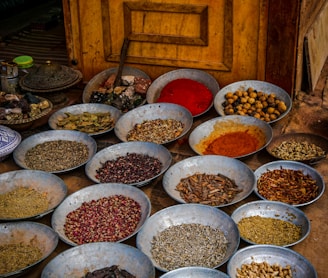Unlocking the Secrets of Ayurveda: A Global Journey of Acceptance
Explore the global embrace of Ayurveda in "Unlocking the Secrets of Ayurveda," a captivating journey revealing its ancient wisdom. Discover how this holistic system is gaining worldwide acceptance, bridging modern science with traditional healing. Join us as we delve into Ayurveda's timeless secrets for holistic well-being. Explore its rise in popularity and the transformative potential it offers individuals of all backgrounds.


Hello, seekers of holistic health! And now, let me take you into the enchanting world of Ayurveda (an ancient medicinal system which is gaining its credibility globally).
With almost multiple decades of experience in this ancient science, I can confirm the immense value it has to offer for people of varied age groups and cultures.
Ayurveda: The Timeless Science of Life
Before diving into its worldwide recognition, let’s first explore the basics of the 5000+-year-old science of holistic healing…. Ayurveda, sometimes called the “Science of Life,” has been around for approximately 5,000 years in India. The essence of Ayurveda understands that every individual is different, and attempts to restore balance and harmony for all aspects of our physical, mental, and spiritual health. The balance of these elements is established by the Ayurveda method wherein all parts are coordinated for a comprehensive approach including dietary plans, daily living practices, herbs and individualistic therapies designed on one’s prakriti or dosha.
The Doshas: The Blueprint of Individuality
To comprehend Ayurveda fully, one must understand the three primary doshas: Vata, Pitta, and Kapha. This is what makes up our physiology and pathology. Here's a brief overview:
Vata: Linked to the air & space elements, Vata controls motion, artistic expression and dialogue. Those with vata predominance are active, and creative, but they can also be anxious and have irregular habits.
Pitta: Linked to fire and water, Pitta controls digestion, metabolism, and intellection, the pittas are generally enthusiastic, smart and ambitious, but can be prone to anger and overheating.
Kapha: Associated with the earth and water elements, Kapha governance is stable, stable, and strong. Kaphas tend to have calming, nurturing temperaments but can be prone to inertia and weight issues.
Global Acceptance of Ayurveda
In recent years, ayurveda has witnessed an unprecedented rise in its popularity and recognition globally. This growing recognition can be attributed to several factors:
Holistic Health Awareness: In age of the stress, lifestyle diseases and the quest for holistic wellness, Balance (Ayurveda way of being) as a key aspect of wellbeing is appealing at all levels of life. It goes deeper into your well-being than conventional medicine.
Scientific Validation: Recently, modern science and medicine have started to confirm what Ayurveda has known for thousands of years. Research on the effectiveness of Ayurveda has been published on everything from arthritis to stress management. This scientific evidence has given more legitimacy to Ayurveda.
Natural and Sustainable: Ayurveda offers natural treatments, herbal products, and lifestyle changes that align perfectly with today’s global shift towards sustainability and an eco-conscious world. This has attracted the attention of those who care about their surroundings.
Personalized Approach: Its personalization, where treatments are designed according to a particular body type, resonates with those yearning for tailor-made health solutions as opposed to generic methods.
Celebrity Endorsement: Celebrity endorsements for Ayurveda have played an important role in the increasing reach of this natural healing practice worldwide. These recommendations make Ayurveda more popular, which means more people start exploring the practice.
The Ayurvedic Renaissance
Ayurveda now has become a global acceptance leading in the Ayurvedic Renaissance. This revolution has been marked by the integration of Ayurveda in mainstream medical systems, the setting up of global Ayurvedic schools and institutions in different parts of the world including the US, Europe, Australia & Africa and a thriving global Ayurvedic wellness industry.
Ayurvedic Practices for Everyone
One of the best features of this ancient science is its inclusiveness towards people from different age groups and backgrounds. Here are some Ayurvedic practices that anyone can incorporate into their daily lives:
Mindful Eating: Watch the what, when, and how of eating. Eat balancing foods as well as enjoy the process of eating in small bites.
Daily Routine (Dinacharya): Make yourself a constitution-based daily schedule. Mediation, Yoga and Self Care Practices are examples of the same.
Herbal Remedies: Try some of the Ayurvedic herbs like Ashwagandha to combat stress, Turmeric for reducing inflammation, and Triphala for improving digestion.
Yoga and Pranayama: Fit Yoga poses with controlled deep breathing in your daily routine for better Physical and mental health.
Self-Awareness: Become aware of yourself by knowing your dosh and detecting imbalance. Adjust your lifestyle accordingly.
Conclusion
This makes me ecstatic as a experienced Ayurvedic practitioner to see the worldwide embrace and absorption of this traditional medicine system into our day-to-day living. With its timeless wisdom and holistic approach to wellness, Ayurveda can enable everyone, regardless of their age, to lead healthier, more balanced lifestyles.
Whether your aim is healing from a health issue, enhancing your well-being, or just learning about other healing modalities, there’s something for everyone in Ayurveda. Welcome to the world of Ayurveda…the way back to a healthier you! Recall, Ayurveda isn’t simply a medicinal framework; it is a life system which can change your wellbeing and well-being for all intents and purposes.
